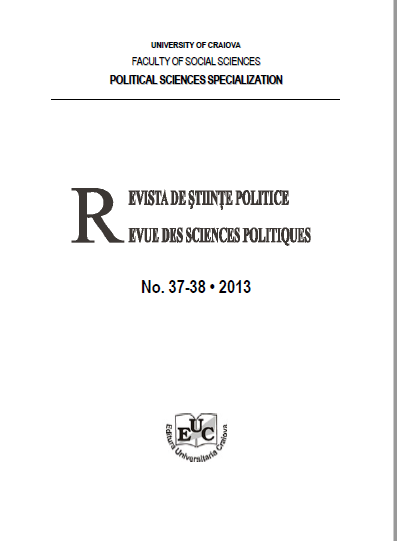Romania’s European Identity between Substantialism and Conventialism
Romania’s European Identity between Substantialism and Conventialism
Author(s): Lorena StuparuSubject(s): Political history, Politics and Identity
Published by: Editura Universitaria Craiova
Keywords: Romanian identity; European values; constructivism; esentialism capable man;
Summary/Abstract: Starting from the premise that European cultural identity of Romania was not completely destroyed in the years 1946-1989, we can say that the transition from the communist regime to the democratic regime is characterized by an attempt to build an identity whose structure is based on the european values in the economic-political-social realm and also on a "solidarity Europe" (Donatella della Porta) whose identity dimension is recalculated by taking into account immigrants. Theoretical, Romania has built in recent years an "western" political identity which is characterized by political pluralism, market economy, social participation, respect for diversity, free and fair competition, rule of law and the primacy of human rights. On the other hand, if the political identity, the social identity or economic identity can be a matter of "decision" in a developed democratic state, cultural and historical identity are substantial objectives assumptions of any identity construction. In defining cultural and national identity we can find a number of constants independently of the current political construction, and, moreover, they are sometimes considered "non-European". The purpose of this study is to show that essentialist and constructivist visions of Romanian identity are complementary, and in this respect the main methods used will be the political comparativism and the phenomenology of politics.
Journal: Revista de Științe Politice. Revue des Sciences Politiques
- Issue Year: 2013
- Issue No: 37+38
- Page Range: 16-21
- Page Count: 6
- Language: English

